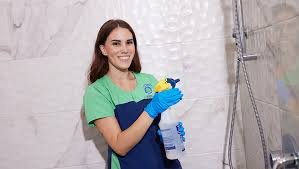1. Why is insurance important for house cleaners?
Insurance is crucial for house cleaners because it provides financial protection against property damage, accidents, and liability claims. It helps cover the costs associated with accidental damage to a client’s property, injuries sustained while working, and legal disputes. Insurance also enhances client trust and professionalism.
2. What types of insurance should house cleaners consider?
House cleaners should consider the following types of insurance
- General Liability Insurance Covers property damage and bodily injury claims.
- Workers' Compensation Insurance Provides coverage for medical expenses and lost wages if a cleaner is injured on the job.
- Professional Liability Insurance Protects against claims of negligence or inadequate work.
- Commercial Auto Insurance Covers accidents and damages while driving for work purposes.
- Property Insurance Protects against losses due to theft, fire, or other damages to equipment and supplies.
3. Is workers' compensation insurance legally required for house cleaners?
In many states, workers' compensation insurance is legally required for businesses with employees. Even if it's not mandated in your area, it is highly recommended to protect both the business and its workers from financial burdens related to workplace injuries.
4. How can insurance benefit house cleaners?
Insurance benefits house cleaners by providing
- Peace of Mind Reduces worry about potential liabilities.
- Enhanced Professionalism Signals a commitment to managing risks responsibly.
- Legal Compliance Ensures adherence to local regulations.
- Attracting Clients Improves client confidence and can attract more business.
- Financial Protection Helps cover costs associated with claims or legal disputes.
5. How do house cleaners obtain insurance?
To obtain insurance, house cleaners should
- Assess their risks and insurance needs.
- Research and compare insurance providers.
- Obtain quotes from multiple providers.
- Consult with an insurance agent specializing in business insurance.
- Purchase and carefully review the chosen policies.
- Regularly review and update coverage as needed.
6. What does general liability insurance cover?
General liability insurance covers claims related to property damage, bodily injury, and personal injury caused by the cleaner’s work. For example, if a cleaner accidentally breaks a client's item or causes a slip-and-fall injury, this insurance helps cover the associated costs.
7. What is professional liability insurance?
Professional liability insurance, also known as errors and omissions insurance, protects against claims of negligence or inadequate work. It covers legal fees and potential settlements if a client claims that the cleaning services were subpar or not performed as expected.
8. Do house cleaners need commercial auto insurance?
If house cleaners use a vehicle for work purposes, such as traveling between job sites, commercial auto insurance is important. Personal auto insurance generally does not cover business-related driving, so commercial auto insurance provides necessary protection for work-related incidents.
9. How often should house cleaners review their insurance coverage?
House cleaners should review their insurance coverage regularly and update it as needed. Changes in the size of the business, the types of services offered, or the scope of work can affect insurance needs, making periodic reviews essential for maintaining adequate protection.
10. What should house cleaners do if they experience a claim or legal dispute?
If a claim or legal dispute arises, house cleaners should contact their insurance provider immediately. The insurance company will guide them through the claims process, provide support, and handle the financial aspects of the claim or dispute according to the terms of the policy.





















